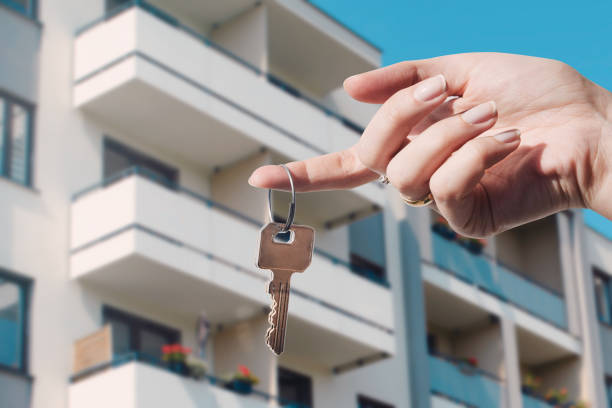Finding the Perfect Apartment: A Comprehensive Guide to Renting
Searching for a new apartment can be an exciting yet challenging experience. Whether you're a first-time renter or looking to upgrade your living situation, understanding the ins and outs of the rental market is crucial. This guide will walk you through the process of finding and securing the ideal apartment, from determining your budget to signing the lease.

What factors should you consider when apartment hunting?
When beginning your search for the perfect apartment, it’s essential to consider several key factors. Location is often at the top of the list for many renters. Think about proximity to your workplace, public transportation, and amenities like grocery stores, restaurants, and entertainment venues. Safety is another crucial aspect, so research crime rates in the area and look for well-lit streets and secure building entry systems.
Size and layout are also important considerations. Determine how much space you need and what type of floor plan works best for your lifestyle. Consider the number of bedrooms and bathrooms, as well as storage options. Additionally, think about your must-have amenities, such as in-unit laundry, parking, or outdoor space.
How can you determine your budget for an apartment rental?
Establishing a realistic budget is a critical step in the apartment hunting process. A general rule of thumb is to allocate no more than 30% of your monthly income towards rent. However, this may vary depending on your location and personal financial situation. Remember to factor in additional costs such as utilities, parking fees, and renters insurance.
Create a comprehensive budget that includes all your monthly expenses, including groceries, transportation, and entertainment. This will help you determine how much you can comfortably afford to spend on rent without stretching your finances too thin. Don’t forget to consider potential future expenses or changes in income that may affect your ability to pay rent long-term.
What are the best ways to search for apartments in your area?
In today’s digital age, there are numerous resources available for finding apartments in your desired location. Online listing platforms such as Apartments.com, Zillow, and Trulia offer extensive databases of available rentals. These sites often include detailed information about each property, including photos, floor plans, and virtual tours.
Social media platforms and local community groups can also be valuable sources for apartment listings. Many landlords and property managers use these channels to advertise vacancies. Additionally, don’t underestimate the power of word-of-mouth. Let friends, family, and coworkers know you’re in the market for a new apartment, as they may have valuable leads or connections.
What should you look for during an apartment viewing?
When visiting potential apartments, it’s important to be thorough in your inspection. Start by assessing the overall condition of the unit, including walls, floors, and ceilings. Check for signs of water damage, mold, or pest infestations. Test all appliances, faucets, and light fixtures to ensure they’re in working order.
Pay attention to the natural light and ventilation in each room. Open windows and doors to check for proper functionality and security. Take note of the noise levels both inside the apartment and from neighboring units or street traffic. Don’t hesitate to ask the landlord or property manager questions about maintenance, parking, and any specific concerns you may have.
What unique factors should you consider when renting in the United States?
When renting an apartment in the United States, it’s important to be aware of certain unique factors. Fair housing laws prohibit discrimination based on race, color, national origin, religion, sex, familial status, and disability. Familiarize yourself with these laws to ensure your rights as a renter are protected.
Lease terms in the U.S. typically range from six months to one year, with some landlords offering month-to-month options. Be prepared to provide proof of income, references, and undergo a credit check as part of the application process. Many landlords require a security deposit, which is usually equal to one month’s rent, in addition to the first month’s rent upfront.
How do apartment rental costs compare across different U.S. cities?
Apartment rental costs can vary significantly across different cities in the United States. To give you an idea of the range, here’s a comparison of average monthly rents for one-bedroom apartments in several major cities:
| City | Average Monthly Rent (1BR) | Key Features |
|---|---|---|
| New York City, NY | $3,000 - $3,500 | High-rise buildings, diverse neighborhoods |
| San Francisco, CA | $2,800 - $3,300 | Tech hub, Victorian architecture |
| Chicago, IL | $1,500 - $2,000 | Affordable big city living, lakefront views |
| Austin, TX | $1,200 - $1,600 | Growing tech scene, vibrant culture |
| Atlanta, GA | $1,300 - $1,700 | Southern charm, expanding job market |
Prices, rates, or cost estimates mentioned in this article are based on the latest available information but may change over time. Independent research is advised before making financial decisions.
Remember that these figures are averages, and actual prices can vary depending on factors such as neighborhood, building amenities, and apartment size. It’s crucial to research the specific areas you’re interested in and consider your budget carefully when choosing a city to rent in.
In conclusion, finding the perfect apartment requires careful consideration of various factors, from budget and location to amenities and lease terms. By conducting thorough research, utilizing available resources, and being prepared during the viewing and application process, you’ll be well-equipped to secure an apartment that meets your needs and fits your lifestyle. Happy apartment hunting!




